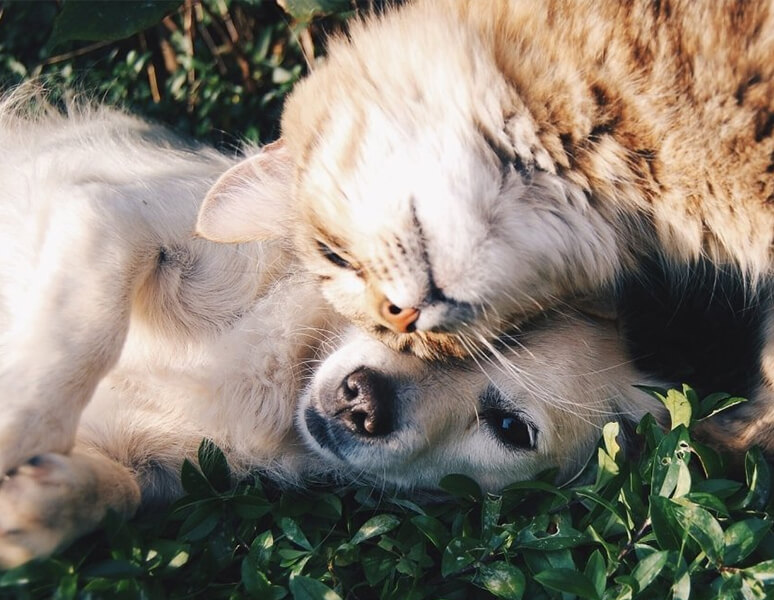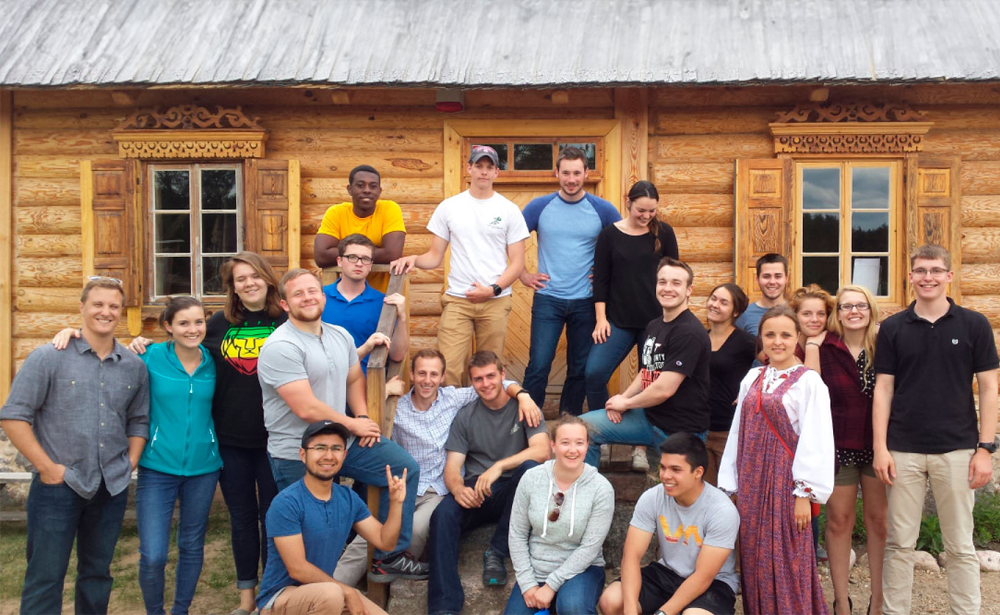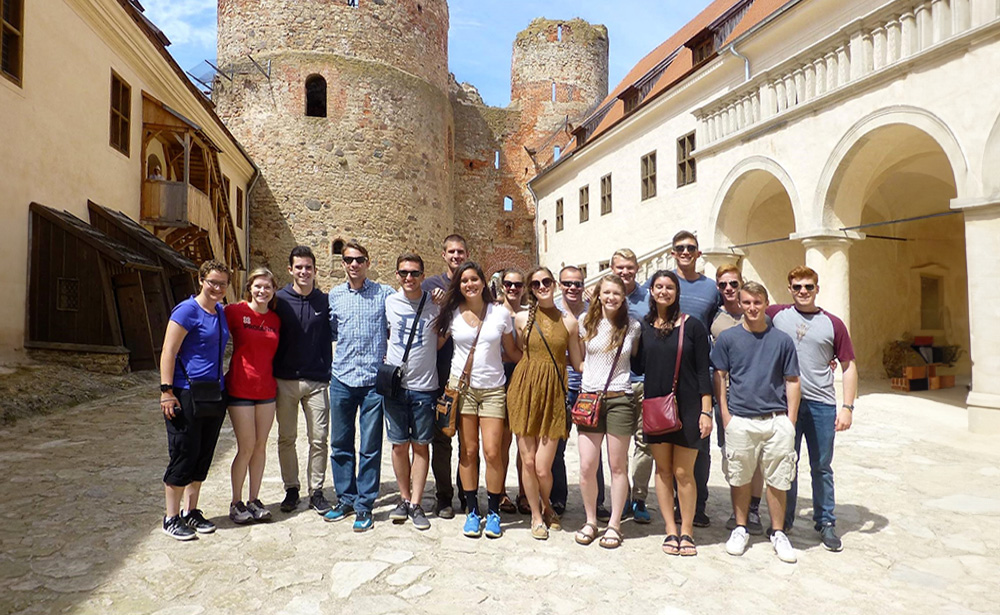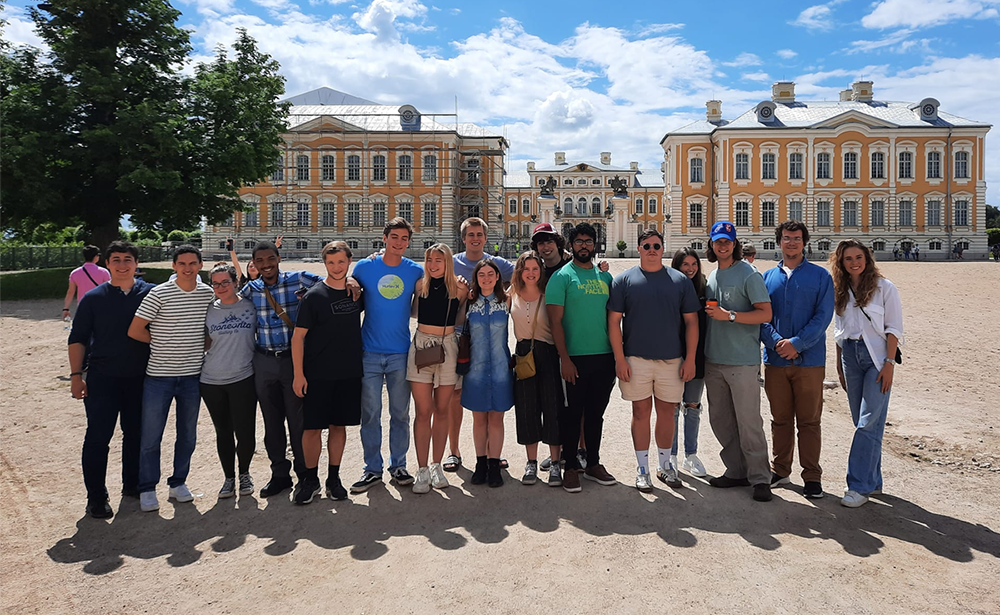10 Fun Russian Phrases about Animals
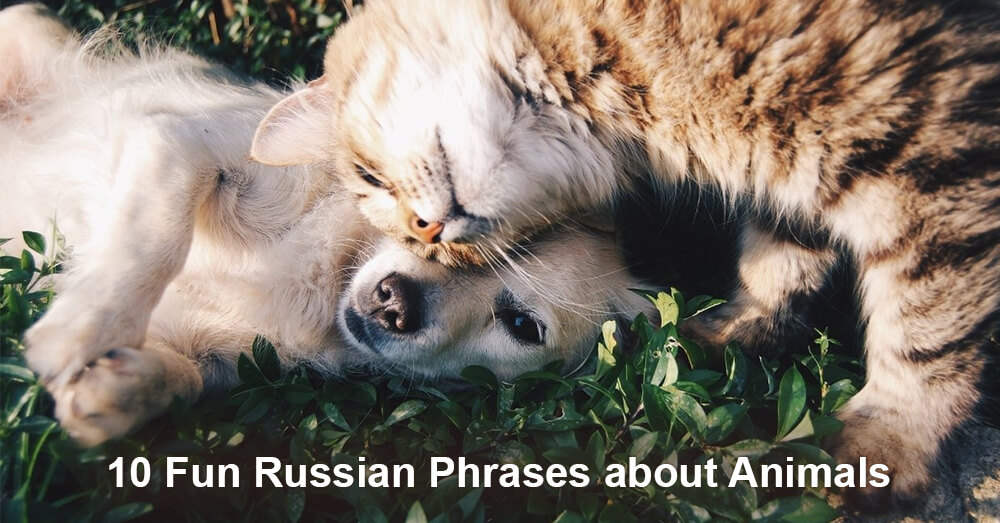
Every language has lots of phrases that refer to both animals and people. The Russian language is not an exception. Every animal has its own features that we also can refer to people. Let’s look at 10 fun Russian phrases about animals.
Пахать как лошадь/работать как лошадь
[pa-HAT’ kak LO-shad’/ra-BO-tat’ kak LO-shad’]
Translation: To toil like a horse/to work like a horse (less crude).
Meaning: To work hard.
The image of a hardworking horse is common in many cultures, which is also reflected in this Russian phrase. It is usually used in conversation as a complaint, implying that someone is doing a difficult but thankless job.
Конь не валялся
[kon’ ne va-LYAL-sya]
Translation: The horse didn’t roll around.
Meaning: Work hasn’t started yet or hasn’t been done.
The origin of this phrase is not known. There are a few versions about its origin. The first one explains that Russian peasants used to have a custom to allow their horses to rest for a while before start work. Another version is that if the horse was not lying, the grass is not crushed, the meadow is not tread, the flowers are not plucked, and there is no work done.
The phrase is now used to say that the work has not yet been done, or more specifically that it hasn’t even begun yet.
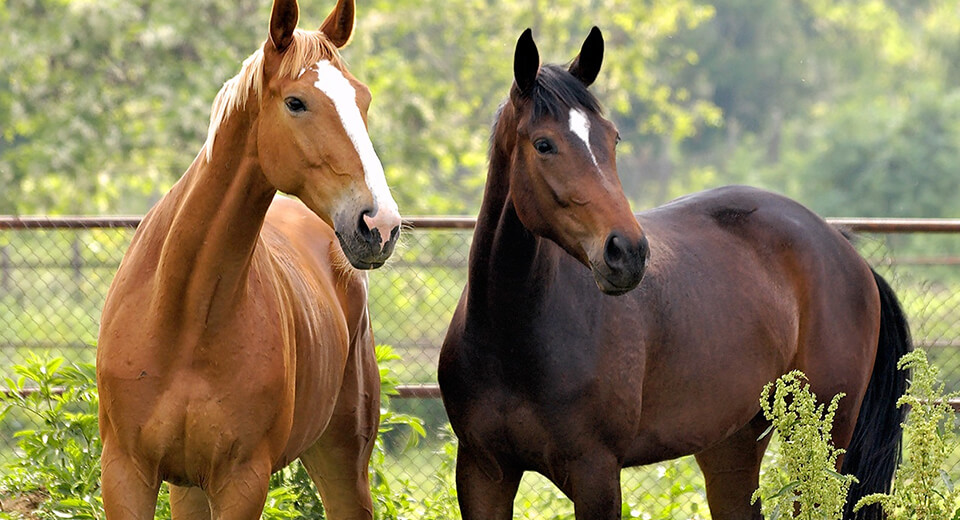
На кривой козе не объедешь
[na kri-VOJ Ko-ze ne ob’YE-desh’]
Translation: You won’t get around it on a crooked goat.
Meaning: It is difficult to contact/approach someone; something is unavoidable.
You can ride a horse or donkey, but you can’t ride a goat. This phrase is not that common but it’s interesting to find out its origin. It’s used to describe a person who is not available, or who is difficult to approach, or contact. The saying can also be used to denote an unavoidable situation.
Денег куры не клюют
[DE-nyeg KU-ry ne klyu-YUT]
Translation: The chickens aren’t pecking the money.
Meaning: Someone has a lot of money.
Chickens are voracious eaters, so when even the chickens are well fed, it means their owner’s well-off enough to keep them sated. This phrase is used to denote people, places, or companies who have so much money that they don’t know what to do with it.
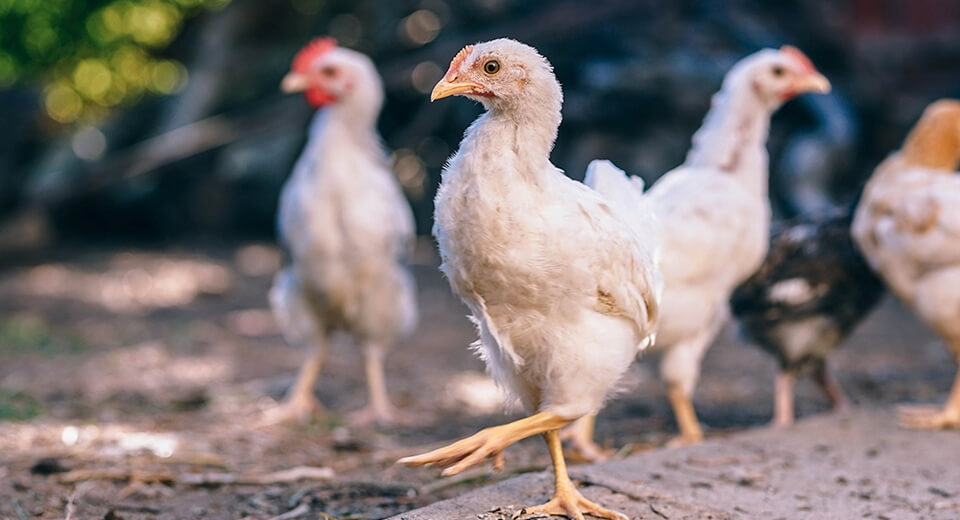
Image credit: www.chickensandyou.com
Есть как птичка
[YE-st’ kak PTICH-ka]
Translation: To eat like a little bird.
Meaning: To eat very little.
It’s seems strange that while chickens are known as voracious eaters, other birds are thought to eat very little. This probably originated from the fact that little birds peck at grains and seeds and can never stuff their mouths full.
Кот наплакал
[kot na-PLA-kal]
Translation: The cat has cried.
Meaning: very little amount of something.
Cats aren’t big animals, and they don’t normally cry though they have tear ducts. That’s how this phrase appeared: you’ll never see cats cry. Therefore, next time when you aren’t happy with the amount of money you’ve earned, you can say ” I have as much money as the cat cried”.
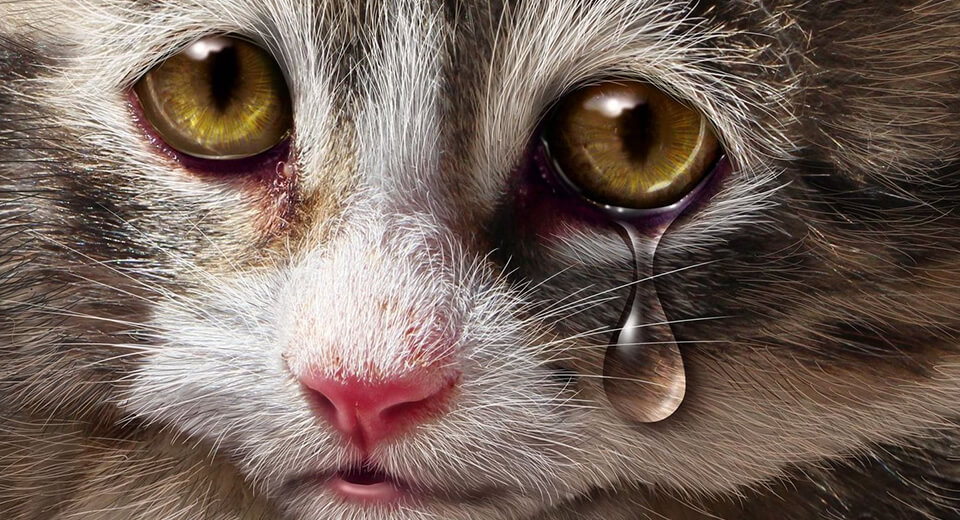
Собаку съел
[so-BA-ku syel]
Translation: Ate the dog.
Meaning: To be really good at something.
Russians are not used to eating dogs, yet somehow this phrase appeared in the language. A person who “ate the dog” has mastered something or has become a professional in this field.
Молчать как рыба
[mol-CHAT’ kak RY-ba]
Translation: To be silent like the fish.
Meaning: To stay quiet about something; not to answer someone.
Fish aren’t exactly known as being talkative, so it’s no surprise they’ve given rise to this phrase.
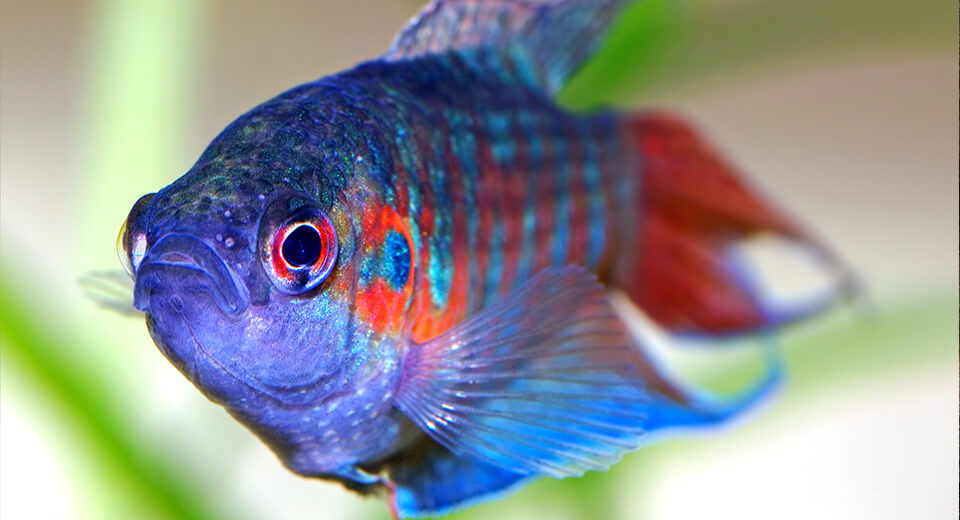
Жить как кошка с собакой
[ZHI-t’ kak KO-shka s so-BA-koy]
Translation: To live like a cat with a dog.
Meaning: Don’t get on well, argue a lot.
Have you ever met people who “fight like cats and dogs?” As it turns out, cats and dogs aren’t friends in Russian culture, either. People who live like a cat and a dog are constantly arguing.
Волка ноги кормят
[VOL-ka NO-gi KOR-myat]
Translation: The wolf is fed by the legs.
Meaning: To get anything done, you have to get up and do it.
As it is said, you won’t get anything done by just sitting around! This phrase refers to the fact that food doesn’t just magically come up to the wolf’s waiting jaws. Wolves have to go get it themselves.
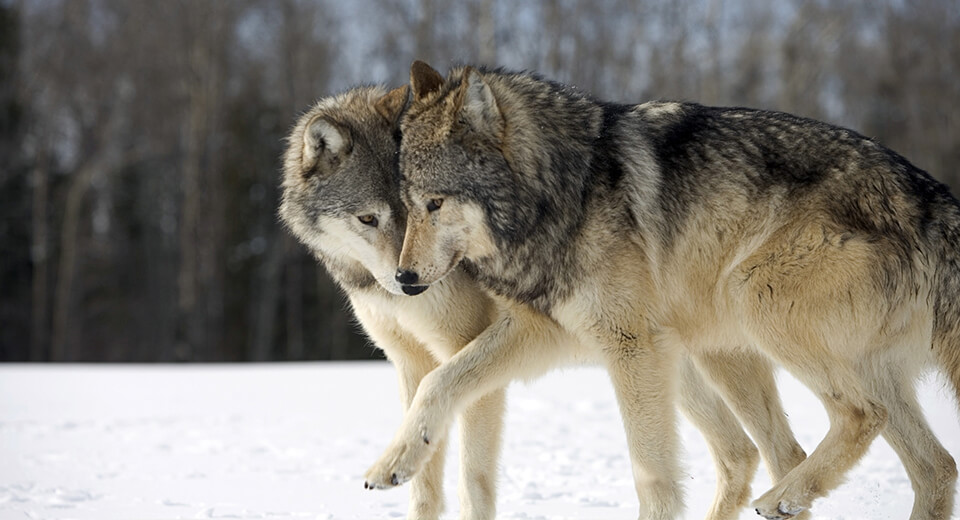
Now, when you know some of the expressions in the Russian language, you are one step closer to the goal – speak Russian as a native. Don’t give up!
You may be interested
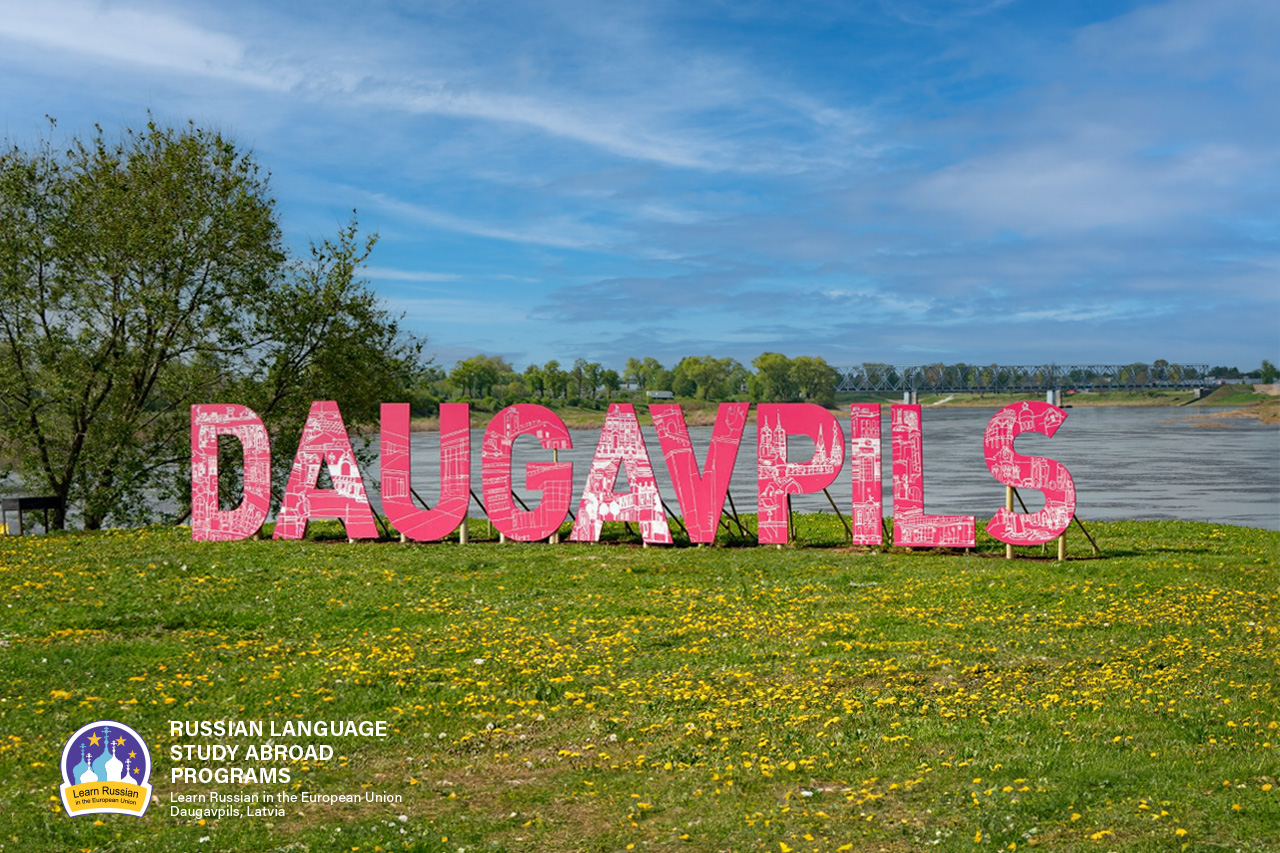
Why do people speak Russian in Daugavpils?
As it seems to us, Daugavpils is the best place to learn Russian now, because our city is situated in the EU and NATO, but at the same time 90% of the city’s population speak Russian at home.
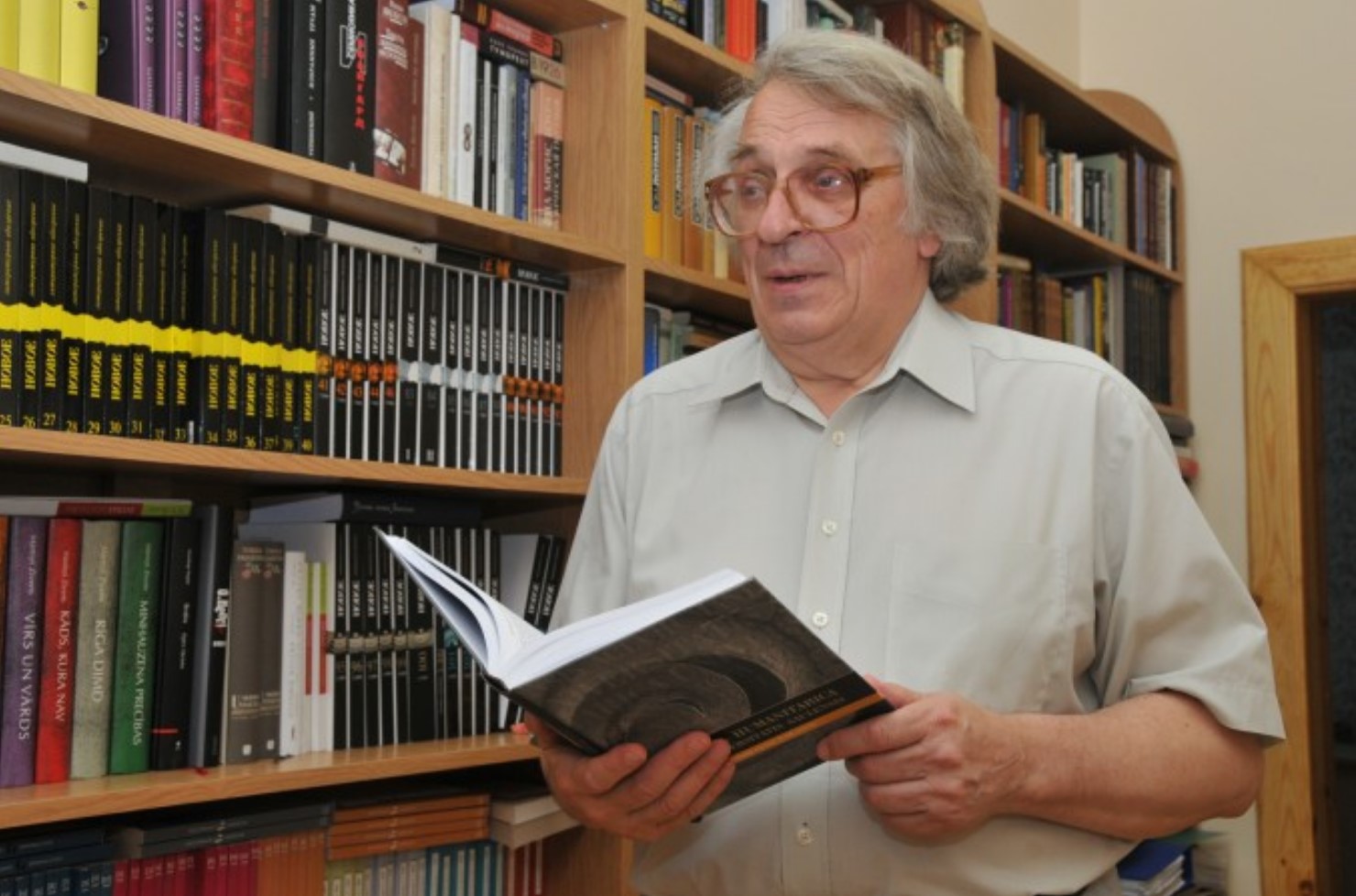
ЭТЮД О ДВИНСКЕ
Etude on Dvinsk by F.Fedorov
The Baltic region is one of the most catastrophe prone regions of the 2nd millennium, especially its second part; it is the centre of attraction of ‘geopolitical’ interests of the European world. Probably the most tragic fate has befallen to the eastern part of the present Latvia and its multi-titled town of Dinaburg – Dvinsk – Daugavpils. During its 730 years long history, the town went through five rather autonomous periods of development, five different lives (German, Polish, Russian, Latvian, Soviet), and at the beginning of the 1990s it entered into the 6th period.
The history of Dinaburg – Dvinsk – Daugavpils is the history of five attempts by the town to begin its life anew; and this is determined not only by the fact that the town was four times burned down and had to start life from scratch, but first and foremost because each of these periods was characterized by a total change of ethnos and the socio-cultural field.
The present article deals with the cultural space of the town in one of the most efficient periods of its development – from the 1860s till World War I.


